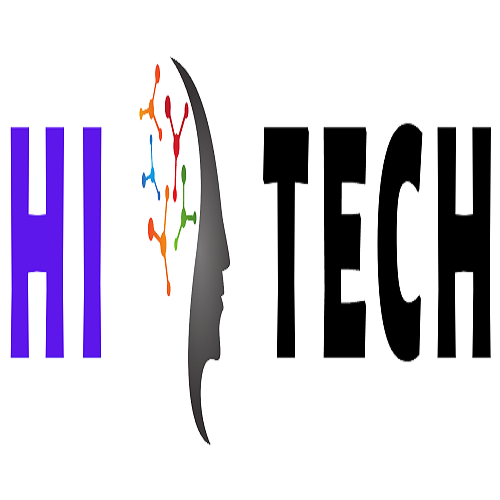Introduction:
Intel is one of
the world's largest and most recognizable technology companies, known primarily
for designing and manufacturing microprocessors and other computer hardware.
The company was founded in 1968 by Robert Noyce and Gordon Moore and has since
grown to become a major player in the technology industry.
Early History:
Intel was originally
founded as a manufacturer of semiconductor memory chips. However, in the early
1970s, the company shifted its focus to microprocessors, which would become its
primary business. The first commercially successful microprocessor developed by
Intel was the Intel 4004, which was released in 1971. This was followed by the
Intel 8008 in 1972 and the Intel 8080 in 1974.
Throughout the 1970s,
Intel continued to develop and refine its microprocessors, leading to the
creation of the Intel 8086, which was the first 16-bit microprocessor, and the
Intel 8088, which was used in the first IBM PC in 1981. In the 1980s and 1990s,
Intel's dominance in the microprocessor market grew as it released new and more
powerful processors, such as the Intel 80286, Intel 80386, Intel Pentium, and
Intel Core.
Products and
Services:
Today, Intel produces a
wide range of products, including microprocessors, chipsets, solid-state
drives, and other computer hardware. The company is also heavily invested in
the development of artificial intelligence and machine learning technologies,
as well as 5G wireless networks.
Intel's
Microprocessors:
Intel's microprocessors
are used in a wide range of devices, including personal computers, servers,
laptops, tablets, and smartphones. The company's chipsets provide support for
these devices, providing connectivity and other features. Intel's solid-state
drives are used for storage, offering faster read and write speeds than
traditional hard drives. Intel is one of the world's largest and most
successful technology companies, known primarily for its microprocessors and
other computer hardware. The company has a long history of innovation, and has adapted
to change in market by investing heavily in new products and
technologies.
Addition:
In addition to its
hardware offerings, Intel also provides software and services related to its
products. This includes software development tools and support, cloud computing
services, and consulting services. In addition to microprocessors, chipsets,
and solid-state drives, Intel also offers a range of other products and
services. One area of focus for the company is artificial intelligence (AI) and
machine learning (ML). Intel has developed a range of AI and ML tools,
including software frameworks, libraries, and development tools. The company's
AI and ML technologies are used in a variety of applications, such as image and
speech recognition, autonomous vehicles, and predictive analytics.
Competition:
Intel faces stiff
competition from other technology companies, particularly in the microprocessor
market. Its primary competitor in this area is Advanced Micro Devices (AMD),
which produces processors that are similar in performance to Intel's but often
at a lower price point. Other competitors include Qualcomm, Samsung, and Apple,
all of which produce their own processors for use in mobile devices.
Market Position:
Despite increased
competition, Intel remains a major player in the technology industry. The
company's revenue in 2020 was $77.9 billion, with a net income of $20.9
billion. Intel's market capitalization is currently over $200 billion, making
it one of the largest technology companies in the world.
Intel's Dominance :
Intel's dominance in the
microprocessor market has been threatened in recent years by AMD, which has
released a series of processors that have been well-received by consumers and
industry experts. In addition, Apple has announced that it will be
transitioning away from Intel processors in its Mac computers, instead using
its own custom-designed processors.
To stay competitive,
Intel has announced plans to invest heavily in the development of new
microprocessors and other technologies. The company has also restructured its
organization to focus more on key growth areas, such as artificial intelligence
and 5G wireless networks.
Intel's History:
Intel was founded in
1968 by Robert Noyce and Gordon Moore, both of whom were former employees of
Fairchild Semiconductor. The company was initially focused on the development
of semiconductor memory chips, but shifted its focus to microprocessors in the
early 1970s. The first commercially successful microprocessor developed by
Intel was the Intel 4004, which was released in 1971.
Throughout the 1970s and
1980s, Intel continued to develop new and more powerful microprocessors, which
helped drive the growth of the personal computer industry. In the 1990s and
2000s, the company faced increased competition from other chipmakers, such as
AMD, and began to diversify its product offerings.
Recent years:
In recent years, Intel
has faced new challenges, such as the increasing importance of mobile devices
and the rise of AI and ML technologies. The company has responded by investing
heavily in the development of new products and technologies, as well as
restructuring its organization to better focus on key growth areas.
Intel's
Competition:
As mentioned earlier,
Intel faces stiff competition from a number of other technology companies, particularly
in the microprocessor market. AMD is perhaps Intel's most direct competitor in
this area, as the two companies produce processors that are similar in
performance and functionality. Other competitors in the microprocessor market
include Qualcomm, Samsung, and IBM.
In addition to its
competitors in the microprocessor market, Intel also faces competition in other
areas, such as AI and ML, 5G wireless networks, and cloud computing. Companies
such as NVIDIA, Qualcomm, and Amazon are among the major players in these
areas.
Conclusion:
Intel is a major player
in the technology industry, known primarily for its microprocessors and other
computer hardware. The company has a long history of innovation, and has
adapted to changes in the market by investing heavily in new products and
technologies. While the company faces stiff competition from other technology
companies, it remains a major player in key growth areas such as AI, 5G, and
cloud computing.









0 Comments